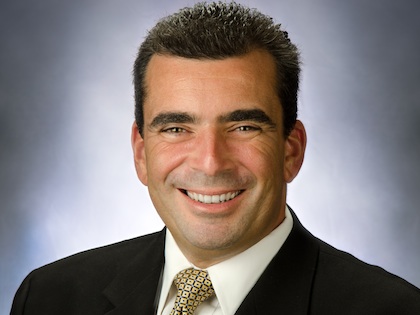“We hear a great deal of talk about the midlife crisis of the executive. It is mostly boredom.” ~ Peter Drucker, management expert
At some point in your career, you may sense a creeping malaise. You’re no longer enthusiastic about the day ahead. Perhaps you’re experiencing a midlife crisis—the sudden realization that you’re no longer a rising star.
After 20 years of all-too-familiar work, you’re good at your job, but you’re not learning or contributing as much. You seldom feel challenged or particularly satisfied and may be reminded of the songs “Working on the Chain Gang” or “Is That All There Is?” While bills must be paid, bosses remain unpleasant, projects fail, and work stagnates.
You try to focus on your true values and the reasons you initially chose your line of work. But the daily grind has somehow taken over, and your work life has been reduced to reports, data, meetings and managing difficult coworkers.
When your job is no longer enjoyable or meaningful, your energy sags, motivation lags, tasks go undone, and you make mistakes. You may think about switching jobs, but this presents additional risks. A “grass is greener” mentality often leads to disappointments, similar to changing seats on the Titanic.
A new career may mean a loss of seniority, lower pay, a geographic move and a new set of problems that closely resemble those you’ve left behind. But staying in a job that seems to be going nowhere, filled with mind-numbing work, means resigning yourself to a lack of growth and meaning.
Before Jumping Ship…
Many people who seek professional coaching complain about losing their passion mid-career. Some would like to switch careers, but they remain cautious in these uncertain times.
Most coaches will advise you to look inward before making a drastic decision. Perhaps the problem isn’t the job or supervisor, but within you. If so, you can change your thinking, beliefs or level of engagement as you strive to make work more meaningful.
Middle age is accompanied by a heightened awareness of one’s sense of meaning. Psychologist Erik Erikson described this stage of life as one seeking productivity and generativity.
You’ve probably seen this in your own life: You want to help others, provide reliable goods or services, make an impact on your community, and provide a comfortable existence for your family. You want to feel that your job is worthwhile.
This is a good time to review your values and purpose with your coach or mentor:
- What was initially attractive about your job?
- When you began your career, what did you expect or hope for?
- In the early days, how did work excite you?
- What has changed?
People are often surprised by their answers, having forgotten their early enthusiasm.
To rekindle your drive, explore three key personal-development components with your coach or trusted advisor:
- Identify your core values.
- Know and manage yourself well.
- Determine how your values fit with who you are today.
Values in Action
Try to remember and connect with your values every time you walk into the office, whenever you chat with a client or coworker, and even when completing routine tasks like paperwork. Remind yourself: “This is why I’m here.”
When you actively look for ways to fulfill your personal mission and values, you find opportunities in surprising ways. While this isn’t a magic pill, it can bring some magic back into your work. Don’t allow yourself to fall into a zombie-like routine and forget to connect with what you love doing.
Remember that organizations have values, too. To be effective, your values must be compatible with those of your company.
Know and Manage Yourself
Self-knowledge is essential. In business, nobody will manage your career if you don’t. Ask yourself three questions:
- What are my strengths?
- How do I perform best?
- How do I learn best?
Learn about your strengths through feedback analysis. Whenever you make a key decision or take a key action, write down what you expect will happen. Later, compare the actual results with your expectations. Over time, your strengths—and your incompetencies—will be revealed. Spend the most energy on developing strengths in lieu of focusing on weaknesses.
How do you perform best? Are you a reader or a listener? Some people work well in teams, while others excel when flying solo. Some learn by doing, while others process information by hearing themselves talk.
The key to knowing yourself well is to receive feedback from peers, formal assessments, or a mentor or coach.
Update Your Identity
Youthful ideals may not follow us into middle age, and appropriately so. Update your values to reflect reality. Accept what is. Either be happy with it, or do something about it.
Try thinking about the person you are—what makes you “you.” How has this identity shifted from that of your younger self? Ask yourself:
- How have I grown in the last decade?
- To what extent would I want to trade places with who I was 10 years ago?
- How much do I romanticize my earlier years?
- Who do I think I want to become—and how close am I to becoming my ideal self?
Work is central to who we think we are, so it’s important to explore and identify your ideals. Tap into what motivates you in the here and now to find passion at work.

Comments on this entry are closed.